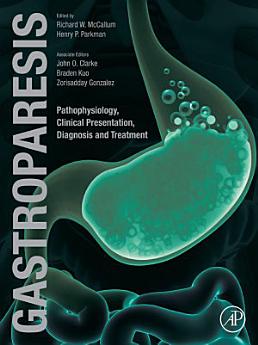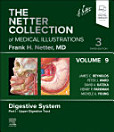Gastroparesis: Pathophysiology, Clinical Presentation, Diagnosis and Treatment
About this ebook
About the author
Richard W. McCallum is recognized internationally as a premier thought leader in the field of neurogastroenterology and gastrointestinal motility. He is professor and founding chair of the Department of Internal Medicine at Texas Tech University Health Sciences Center and chief of its Division of Gastroenterology, Hepatology and Nutrition. He is also director of the Center for Neurogastroenterology and GI Motility.McCallum pioneered the use of gastric electrical stimulation to treat gastroparesis, instigating a new direction of treatment for patients with nausea and vomiting. He is also a central figure in clinical research trials studying all the major prokinetics—drugs that enhance gastrointestinal motility—as well as antiemetics— agents working in the brain to block nausea. His scientific publications in peer-reviewed journals exceed 450, and he has edited more than a dozen scientific textbooks. He holds five patents.McCallum has held several important leadership roles at the American College of Gastroenterology, the American Gastroenterological Association, the American Neurogastroenterology and Motility Society, and the Southern Society for Clinical Investigation. He has held editorial responsibilities with several major journals. He has been honored by Texas Tech University, the American Gastroenterological Association, the American Diabetes Association, the Texas Medical Association, and the Southern Society for Clinical Research. His research on the pathophysiology and treatments for gastroparesis has been funded by the National Institutes of Health (NIH), and he recently received another five-year renewal of this grant for $2 million.
Henry Parkman is the Vice Chair of Research, Department of Medicine Professor and Medicine Director at the GI Motility Laboratory at the Lewis Katz School of Medicine. His main areas of research include the use of multichannel electrogastrography to assess gastric myoelectrical activity to detect gastric motor function in patients with dyspeptic symptoms. He has developed a noninvasive test to measure simultaneously both gastric emptying and gastric volume after ingestion of a solid meal under physiologic conditions which is useful in defining the pathophysiologic factors which cause symptoms in patients with functional dyspepsia and be useful to test the effects of new pharmaceutical agents. He is also investigating gastric motility, breath tests for gastric emptying, electrogastrography (EGG), new pharmaceutical treatments for gastroparesis and functional dyspepsia, small bowel motility recordings, esophageal pH and motility recordings.
John Clarke is part of the Gastroenterology & Hepatology Division at Stanford University as Director of the Esophageal Program. He previously spent 17 years in Baltimore, including 9 years on the faculty at Johns Hopkins University where he was an Associate Professor and at various times Director of Esophageal Motility, Director of Gastrointestinal Motility, Clinical Director of the Johns Hopkins Center for Neurogastroenterology, and Clinical Director of the Gastroenterology & Hepatology Division at Johns Hopkins Bayview Medical Center. His career has combined research, education and clinical care. His clinical areas of expertise include achalasia, dysphagia, eosinophilic esophagitis, esophageal dysmotility, gastroesophageal reflux disease, gastroparesis, GI-manifestations of scleroderma and GI dysmotility. While at Johns Hopkins University, he was inducted into The Miller-Coulson Academy for Clinical Excellence, an institutional honor society for master clinicians at the time limited to 50 members across the entire university. From an education standpoint, he has lectured in over a dozen countries, authored over 25 textbook chapters and serves on the educational affairs committee of the American College of Gastroenterology. He has also won several major teaching awards, including The Johns Hopkins University Alumni Association Award for Excellence in Teaching, given to one faculty member per year in the entire School of Medicine.His research has focused on optimization and characterization of diagnostic studies to evaluate motility disorders, as well the relationship between therapeutic endoscopic techniques and treatment of motility disorders. He was an investigator on the NIH Gastroparesis Consortium and is also a former recipient of the AGA Don Castell Award.
Dr. Kuo is Assistant Professor of Medicine at Massachusettes General Hospital. His laboratory is focused on clinical and translational research in GI Motility and Visceral Pain Syndromes such as GERD, gastroparesis, constipation and irritable bowel syndrome. The research has several components including research into gut motility physiology in health and disease, understanding the brain circuitry of gut sensations, and clinical trials.







